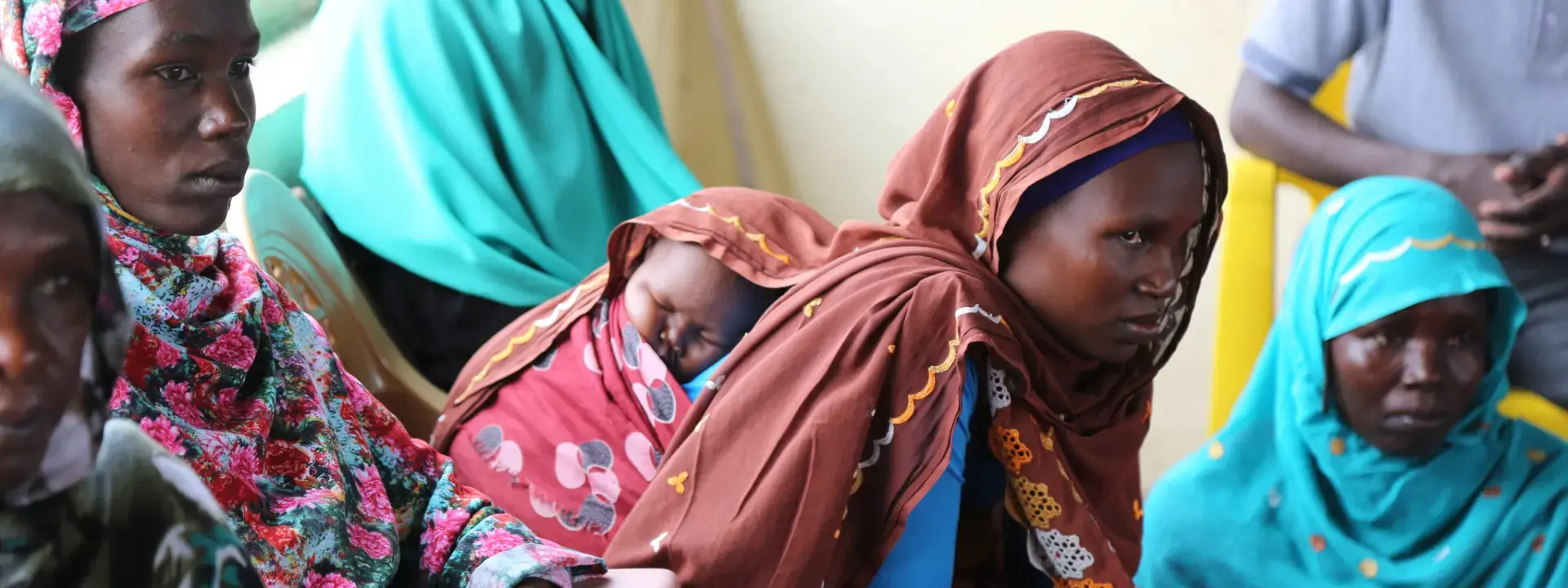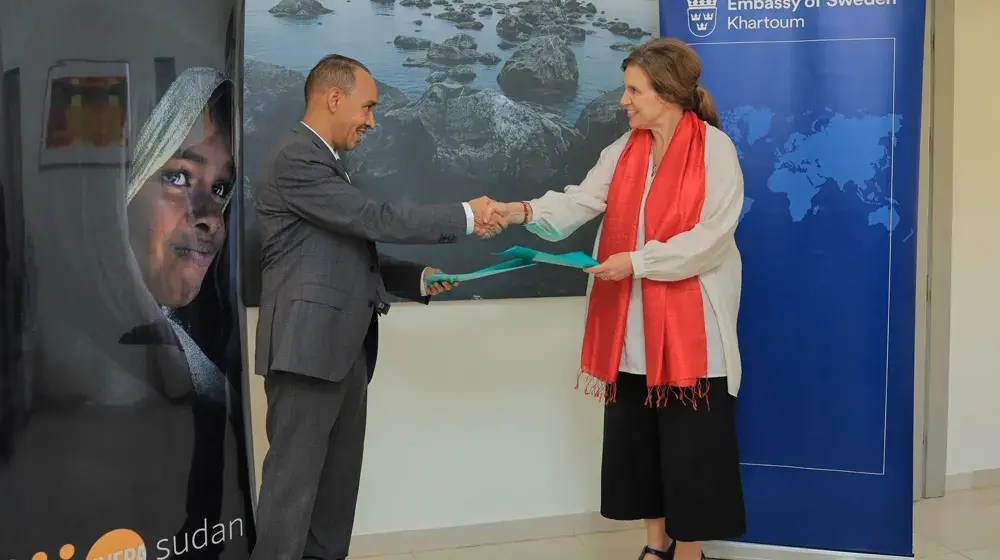Good sexual and reproductive health is a state of complete physical, mental and social well-being in all matters relating to the reproductive system. It implies that people are able to have a satisfying and safe sex life, the capability to reproduce and the freedom to decide if, when, and how often to do so. To maintain one’s sexual and reproductive health, people need access to accurate information and the safe, effective, affordable and acceptable contraception method of their choice. They must be informed and empowered to protect themselves from sexually transmitted infections. And when they decide to have children, women must have access to skilled health care providers and services that can help them have a fit pregnancy, safe birth and healthy baby. Every individual has the right to make their own choices about their sexual and reproductive health in all circumstances, including in humanitarian settings, and UNFPA in the Arab region, together with a wide range of partners, works toward the goal of universal access to sexual and reproductive health and rights, including family planning.
Reproductive health and development
UNFPA works to ensure sexual and reproductive health and rights remain at the very centre of development. The International Conference on Population and Development draws a clear connection between reproductive health, human rights and sustainable development. When sexual and reproductive health needs are not met, individuals are deprived of the right to make crucial choices about their own bodies and futures, with a cascading impact on their families’ welfare and future generations. And because women bear children, and also often bear the responsibility for nurturing them, sexual and reproductive health and rights issues cannot be separated from gender equality. Cumulatively, the denial of these rights exacerbates poverty and gender inequality.
Despite the many crises in the Arab region, women and girls have more agency and choices over their bodies today, with only 10% of women in the Arab region lacking access to family planning services compared to the 15% reported five years ago. At the time of the International Conference on Population and Development in 1994, just one-third of women in the region were able to exercise their reproductive choices through modern contraceptives, compared to nearly half (45%) today.
Key concerns
The denial of sexual and reproductive health and rights can be seen most acutely in low and middle-income countries, and countries affected by conflict or crises, where sexual and reproductive health problems are often a leading cause of ill health and death for women and girls of childbearing age. Impoverished women suffer disproportionately from unintended pregnancies, unsafe abortion, maternal death and disability, sexually transmitted infections (STIs), gender-based violence, and other problems related to pregnancy and childbirth.
Young people are also extremely vulnerable, often facing barriers to sexual and reproductive health information and care. Young people are disproportionately affected by HIV, for example, and every year millions of girls face unintended pregnancies, exposing them to risks during childbirth or unsafe abortions and interfering with their ability to go to school. Adolescent sexual and reproductive health is therefore another important focus of UNFPA’s work.
UNFPA also works to prevent and address STIs, which take an enormous toll around the world. More than a million people acquire an STI every single day. Without diagnosis and treatment, some STIs, such as HIV or syphilis, can be fatal. STIs can also cause pregnancy-related complications, including stillbirth, congenital infections, sepsis and neonatal death. STIs like human papillomavirus (HPV) can lead to pelvic inflammatory disease, infertility and cervical cancer, a major killer of women.
A life cycle approach
Sexual and reproductive health is a lifetime concern for both women and men, from infancy to old age. Evidence shows that reproductive health in any of these life stages has a profound effect on one's health later in life. UNFPA supports programmes tailored to what people face at different times in their lives, including comprehensive sexuality education, family planning, pre-conception care, antenatal and safe delivery care, post-natal care, services to prevent sexually transmitted infections (including HIV), and services facilitating preventive screening, early diagnosis and treatment of reproductive health illnesses including breast and cervical cancer.
To support sexual and reproductive health throughout the life cycle, services across a variety of sectors must be strengthened, from health, including the health workforce, to education systems to even transport systems, which are required to ensure health care is accessible. And all efforts to support sexual and reproductive health service delivery rely on skilled health care providers who can provide timely, high-quality and respectful care that is also affordable and accessible, functional health infrastructure, integration with other services and the availability of essential health supplies such as contraceptives, life-saving medicines and basic medical equipment.
UNFPA’s work in Arab region
UNFPA's work on improving sexual and reproductive health is a key effort towards achieving Sustainable Development Goal 3, which calls for good health and well-being. It also advances Goal 5, which calls for gender equality, as well as many of the other goals included in the 2030 Agenda.
The Arab region’s population is expected to grow to over 533 million by 2030 and 694 million by 2050, and the region’s population is youthful, with the proportion of children under 15 years of age constituting about a third of the region’s population in 2023. The number of youths aged 15 to 24 years increased from 51 million in 1995 to nearly 82 million in 2023 and is expected to reach 108 million in 2050. This makes UNFPA’s work in reaching youth absolutely crucial.
UNFPA in the Arab region works in 15 countries, as well as at the regional level, to respond to the sexual and reproductive health needs of the population, including in humanitarian contexts. UNFPA works with governments, other UN agencies, civil society and donors to develop comprehensive efforts to ensure universal access to sexual and reproductive health care across the Arab region. UNFPA advocates for integrating the delivery of these services into primary health care, so it is as accessible as possible. This means, for instance, that a woman could address her family planning, antenatal care, HIV testing and general health needs all in one place.
UNFPA is also working with governments and communities to strengthen health systems, including supporting the implementation of reproductive health programmes, improving the quality of reproductive health care and strengthening human resources. UNFPA also works to make sure reproductive health commodities are available where needed, and that a functioning logistics system is in place. The Maternal Health Thematic Fund and UNFPA Supplies are just two examples of UNFPA’s work in strengthening health systems and quality services.
While strengthening national systems, UNFPA also puts special emphasis on increasing access for disadvantaged groups, including the urban poor, rural communities, indigenous populations and women and girls with disabilities.
Mobile Clinics & Mobile Health Teams
In regions where healthcare facilities are inaccessible due to conflict or natural disasters, UNFPA Sudan deploys mobile clinics and mobile health teams to provide life-saving services to women and girls. These mobile units are designed to reach underserved and hard-to-reach areas, including IDP and refugee camps, ensuring that essential reproductive health services are available to vulnerable populations. Mobile clinics offer a range of services, including maternal health care, family planning, clinical management of rape (CMR), and psychosocial support.
Mobile health teams, staffed by skilled healthcare professionals like midwives and nurses, deliver critical services such as antenatal and postnatal care, safe childbirth assistance, and emergency obstetric services. These teams also focus on gender-based violence (GBV) prevention and response, providing survivor-centered support in communities where women and girls face heightened risks. Through these mobile units, UNFPA ensures that even the most isolated communities can access the healthcare they need, supporting the dignity and well-being of women and girls across Sudan.






